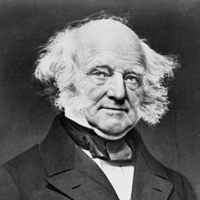The great man isn't any more


Iyer's point:
I think people have to realize that this man sleeps like 4 hours a day, if that. Every word coming out of his mouth has the potential to change the world in some way.
Yes, Microsoft couldn't run without the wisdom of its CEO. It's nothing without a genius who can distill its vision from the top-down.
All of which turns Ballmer, for me, into Martin Van Buren. Van Buren was no Andrew Jackson, just as Ballmer is no Bill Gates. Depending on Van Buren to be Jackson was a mistake. Just as expecting Ballmer to be Gates is a mistake.
But there is something else wrong with this picture, namely the Forbes "Great Man" theory. Forbes always writes from the point of view of the CEO, first person singular, the one guy who knows it and you must listen to.
Great companies can start that way. Microsoft started that way. And every great CEO must see themselves as an entrepreneur, someone who makes change happen rather than waiting for change to happen to their business.
But to some extent open source makes that obsolete. Google makes that obsolete.
Open source projects are often run by committees. Large numbers of people within the community choose how best to contribute. Great leadership from the top of the tower is not as important as everyone feeling that they can exert leadership in their own way.
That's Google's secret. Sergey Brin and Larry Page aren't Great Men. They enable. They give their people power, let them all be entrepreneurs, then support those whose ideas work best.
Most change at Google happens from the bottom-up. It's not a top-down organization. There's no Bill Gates there.
This is really what the Internet enables, not just in business but everywhere. This is what open source is all about. Bottom-up, self-directed change where everyone is empowered to give just what they can.
What Ballmer's defenders, like Hillary Clinton's defenders, miss is that their best arguments may be showing just how much history has passed their heroes by.
In a bottom up world the role of the leader is to inspire, to empower, to say yes as often as possible and no as little as possible. It's about self-organizing, and nurturing the little Great Man (or woman) inside each one of us.